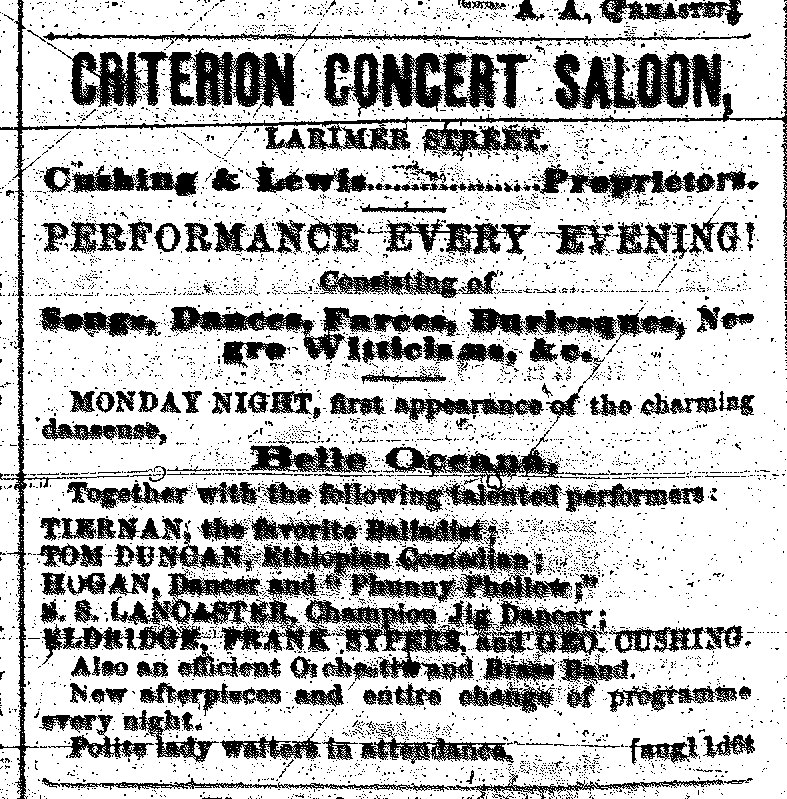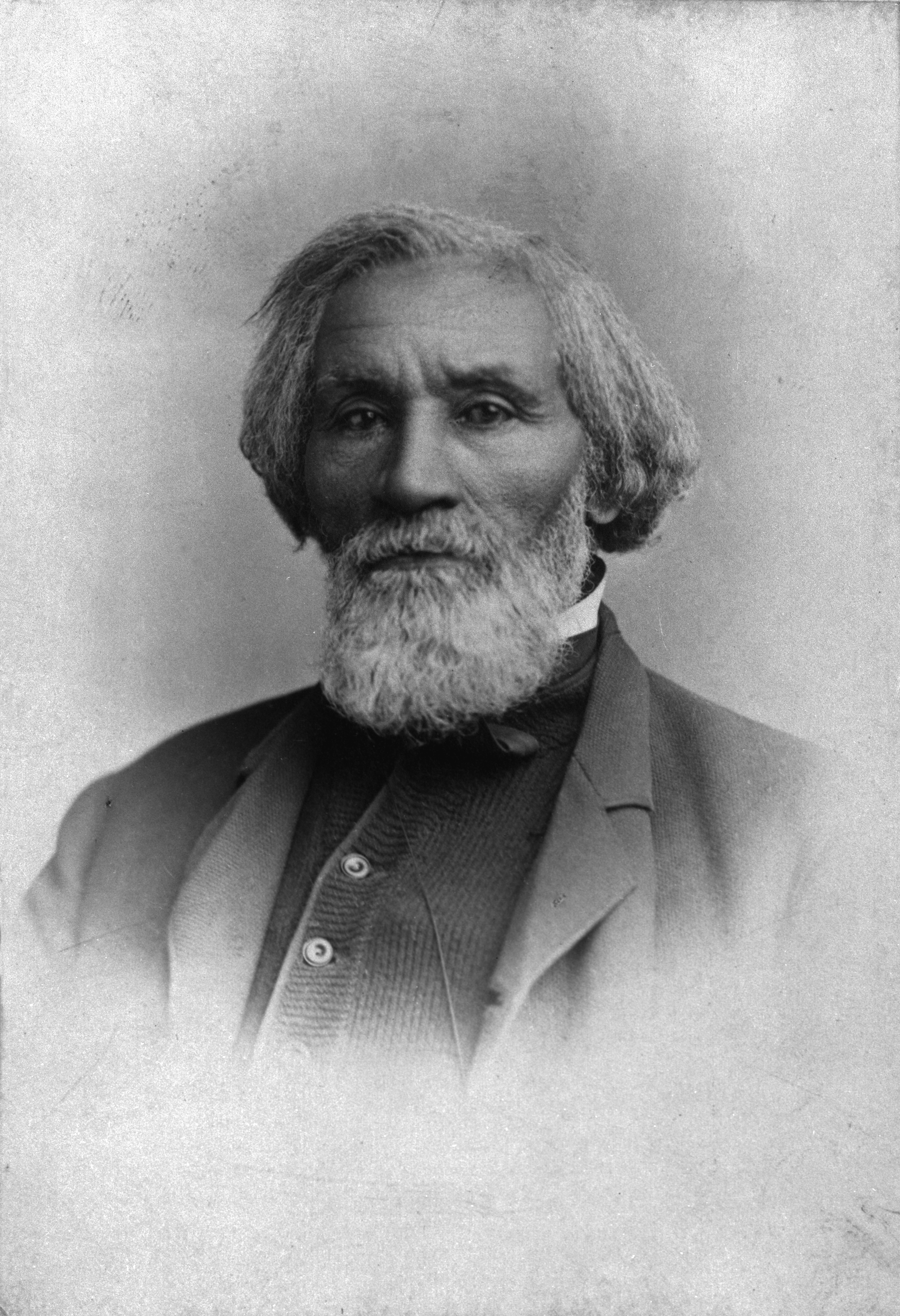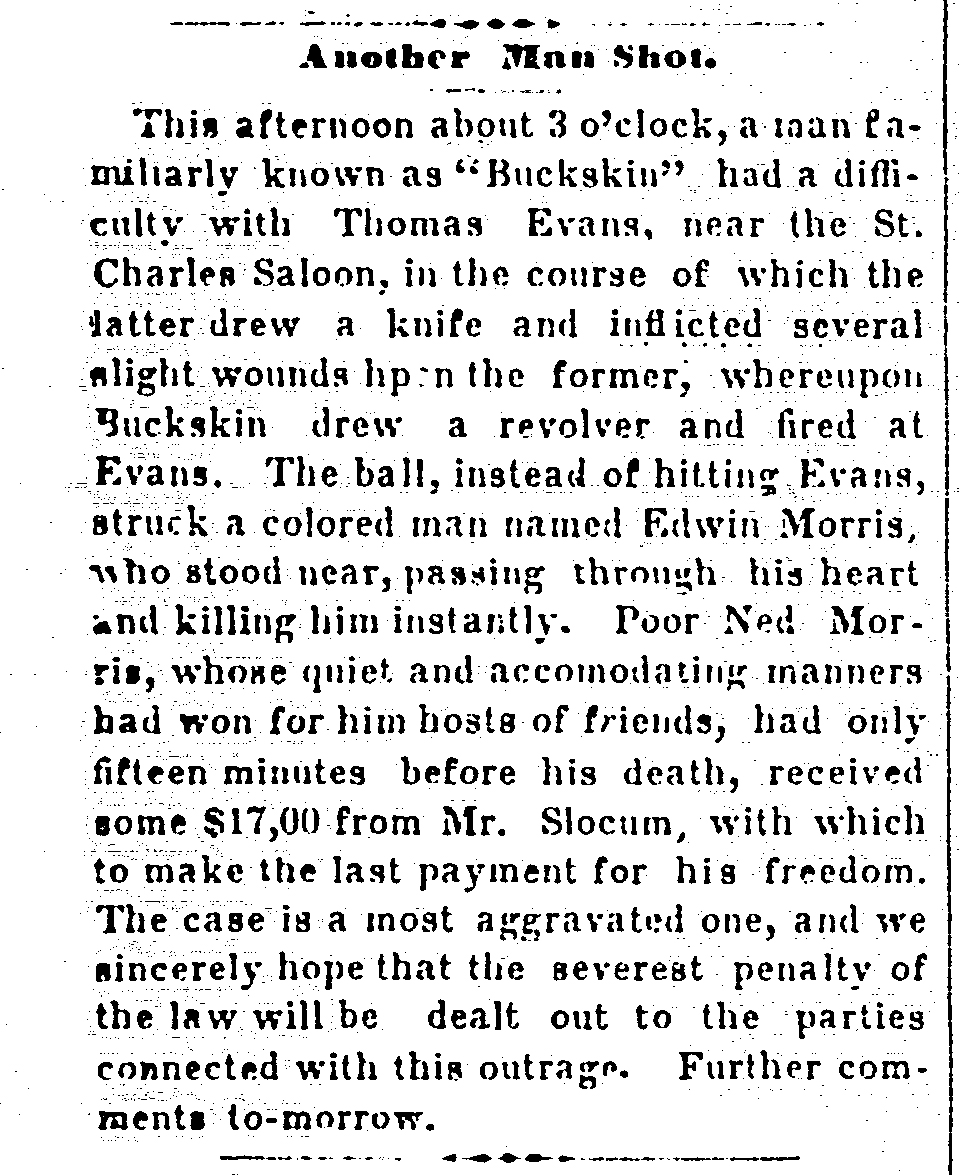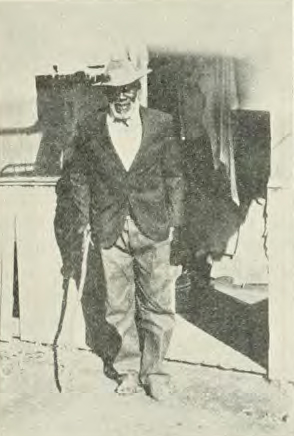Story
11 Black Coloradans’ Stories of Emancipation
Next week we observe the formal end of slavery in the United States on Juneteenth. Although President Lincoln gave his Emancipation Proclamation on January 1, 1863, it wasn’t until June 19, 1865 that Union soldiers arrived in Galveston, Texas and announced that the war had ended and that the enslaved were now free.
Colorado was just coming into its own at this time, and suffrage for African Americans was a central issue on the path to statehood, leading President Andrew Johnson to reject a bill in 1867.
What better way to commemorate Juneteenth in Colorado than to share stories of Coloradans who comprise our shared past? You may have heard of “aunt” Clara Brown, Barney Ford, James Beckwourth, O.T. Jackson, and Bill Pickett—or maybe you’ve heard of Joseph Westbrook, Clarence Holmes, Izum Dart, Edwin H. Hackley, and Azalia Smith Hackley—but there are countless others whose lives also tell the story of how black Americans navigated challenges and opportunities in Colorado after the Civil War.
Read on to learn a little more about some black Americans who, in the shadow of slavery and the turmoil of its abolishment, made history in this state.
Henry O. Wagoner was born in Maryland to a free black mother and a German immigrant father. Before he came to Denver in 1860, he established a reputation for political leadership, raising money to cover legal fees for fugitive slaves (an endeavour that is reflected in efforts of the present day), writing for Frederick Douglass’ Paper, and supervising an Underground Railroad station in Chicago. Naturally he became a spokesman for civil rights in the Colorado Territory.
William Jefferson Hardin was born free in Kentucky and moved to Denver in 1863 when Colorado’s first territorial legislature passed a law allowing men of color over 21 to vote (the law was amended the following year). He was a barber, poolroom manager, stock speculator, and public speaker known as “Octoroom Orator” who liked to tell stories of notable black people in history and campaign for civil rights. He became the first African American to serve as a legislator in the Wyoming Territory Legislative Assembly and later served as a mayor of Leadville, where he passed away.

This Rocky Mountain News clipping from August 14, 1862 lists Samuel S. Lancaster as a champion jig dancer performing at the Criterion Concert Saloon.
William J. Payne arrived in Denver as an enslaved blacksmith, shoeing horses for the Central Overland California and Pike’s Peak Express. After he was emancipated he acquired a reputation as a lawbreaker, standing trial in 1859 for the murder of fellow African American Oliver Davis; he claimed self-defense and was acquitted. In 1864, he was shot by the larger-than-life James Beckwourth in Beckwourth’s saloon. Beckwouth was acquitted, and by some even praised.
Samuel and Nancy Lancaster, who lived together in a cabin in Denver, had worked for wages to purchase their emancipation. Sam was a barber who worked in mining camps to earn a “liberty fee” of $1,200, while Nancy purchased her freedom from a Kansas pastor for $600.
Edwin “Ned” Morris had the great misfortune of dying minutes after getting the funds to buy his freedom in 1861. It was a stray bullet from a brawl outside Denver’s St.Charles Saloon that took his life, spurring the Rocky Mountain News to write, “We sincerely hope that the severest penalty of the law will be dealt out to the parties connected with this outrage.” The accused culprit “Buckskin” Mark Widgenstein was acquitted nine days later.
James Lisbon was a free black from Illinois who decided to head west to mining camps. While en route, he was captured and beaten by a Missouri sheriff, sold to a southern trader for $1,043, and jailed for four months. He attempted to hire a lawyer who ended up stealing his money. (Racial inequities persist within the U.S. criminal justice system today and although they are more fully understood, sadly, tragedies such as these are still not entirely unheard of.)
Edward J. Sanderlin was the son of his enslaved mother and his plantation owner father. He headed west at age 17 and made it to Pikes Peak by age 26. By 1860, he was already on his way to becoming one of the territory’s most prominent African American entrepreneurs, eventually owning a barbershop in Denver. (Not unlike the prospect of mining, the recent legalization of marijuana held much promise for black entrepreneurs, yet very few have benefited.)
John Taylor was born to enslaved parents in Kentucky, where in 1864 he enlisted in the first negro regiment in the state. He was honorably discharged but reenlisted in the U.S. Army in 1867 and was sent to the southwest to fight American Indians. After leaving the army in Texas, he joined a band of Utes and eventually settled in the San Juan Valley. Over the years he kept company with many women—Mexican, Navajos, Hopis, Apaches, and Utes, one of whom bequeathed him a homestead that became the site of today’s Ignacio.
Elijah Wentworth, known as “Lige,” was enslaved to a plantation owner in Virginia. He did not know where, when, or to whom he’d been born. After the plantation owner’s family moved to Missouri, he heard that their friend was preparing to lead many covered wagons to Denver, and he begged to be able to join them as their cook. In Colorado, he became known as a singer of verses and a town “crier.” Tourists looked forward to seeing him as they deboarded trains at Union Station.
Julia Greeley was born into slavery and was freed during the Civil War. She came to Denver as a laborer for Mrs. Julia Pratt, who married first Territorial Governor William Gilpin. Greeley was known for her good deeds and dubbed the “Colored Angel of Charity.” She was a mainstay at Sacred Heart Church, where she received an unprecedented assembly during her funeral.
Junius R. Lewis was born in 1842 on a Mississippi plantation. Rather than fleeing to the north as his enslaved mother had advised him, he decided to stay to care for her until she was sold. He left in 1862 and walked hundreds of miles to Kentucky before being arrested by a Confederate officer. He was subsequently enslaved by many Generals in Virginia, including one that was present when General Lee surrendered to Ulysses Grant. He ventured back to Mississippi to find his mother, then they headed west through Texas, eventually arriving in Denver in 1882. He worked as a porter for the Pullman Palace Car Company and became friends with Jackson, Westbrook, and Dr. P. E.Spratlin, the first black man to receive a medical doctorate from the University of Colorado. Lewis became a miner, then prosperous president of the Golden Chest Mining, Milling, and Tunnel Company. Ultimately he endured legal battles with the company over wages and property until 1935, three years before his virtually penniless death at Denver General Hospital.
For more stories about these Coloradans and many others, you can search our catalog for Colorado Heritage magazine articles dating all the way back to 1923 and other items documenting Emancipation Day celebrations in Colorado as far back as the 1870s.




